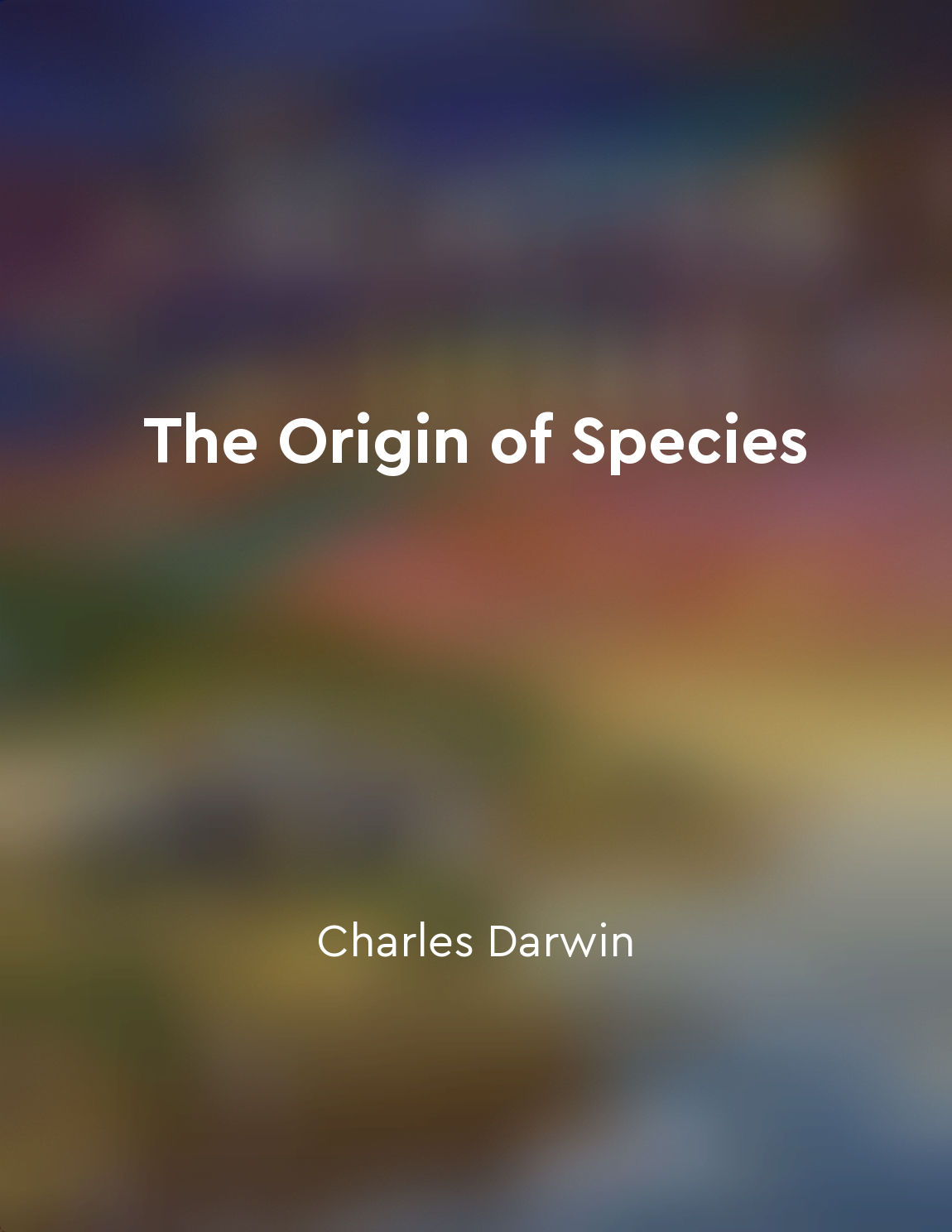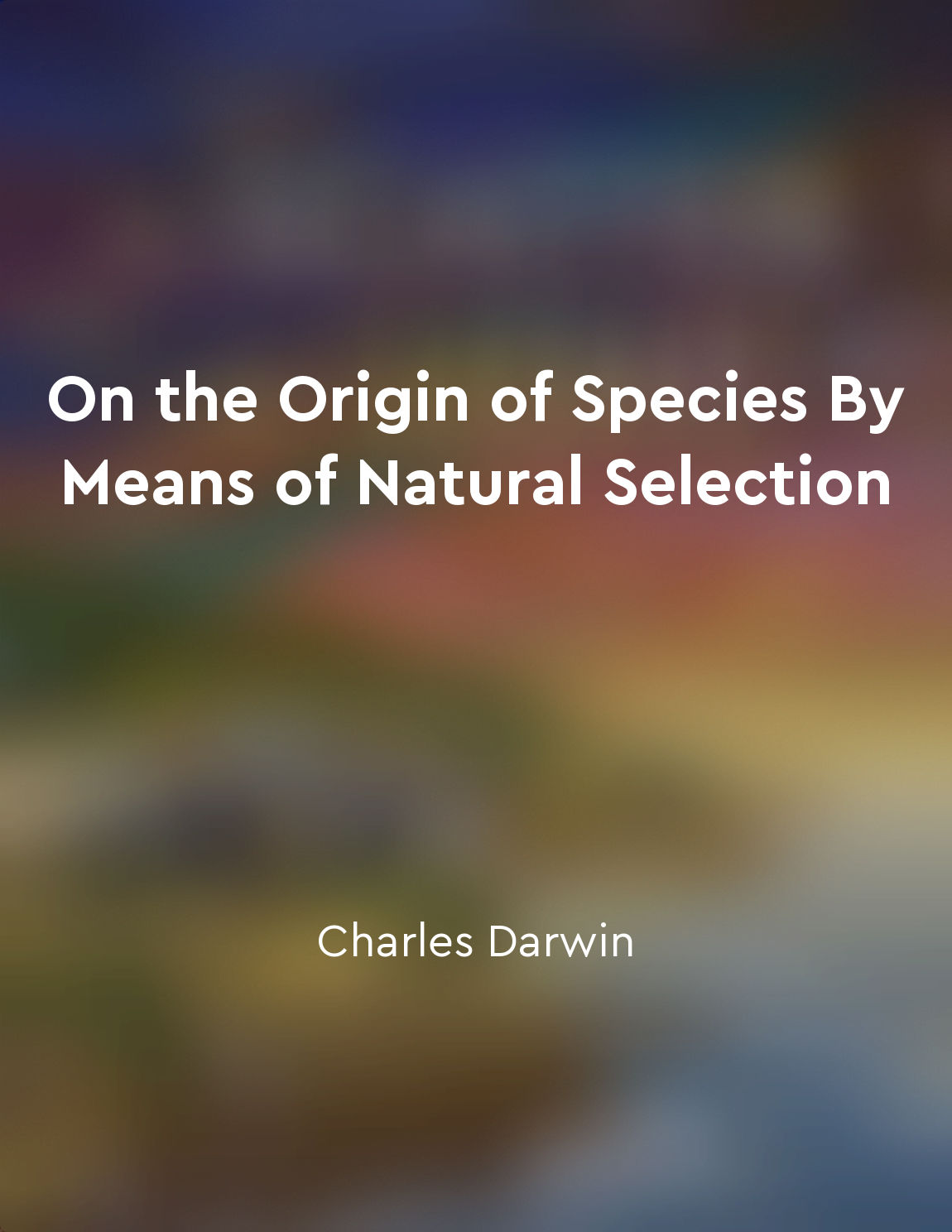Variation is key to diversity from "summary" of The Origin of Species by Charles Darwin
The fact that variations are indispensable for the production of new forms and for representing distinct species is evident. Variations, indeed, are the key to the diversity of life on this planet. It is through slight variances in structure and function that new species arise, each adapted to its specific environment and niche. Without the presence of variations, there would be no opportunity for natural selection to act upon and favor those individuals better suited to survive and reproduce. Variations can arise through a multitude of mechanisms, including genetic mutations, recombination, and environmental influences. These variations provide raw material for evolution to work upon, allowing species to adapt to changing conditions over time. Without this inherent variability in populations, species would be unable to respond to the ever-changing challenges presented by their environment. Furthermore, the presence of variations within a population also ensures that individuals within a species are not identical. This genetic diversity is crucial for the long-term survival of a species, as it increases the likelihood that at least some members will possess traits that are advantageous in a given situation. In this way, variations serve as a form of insurance against environmental uncertainties and help to buffer populations against extinction.- Variations are not only essential for the generation of new species but also play a critical role in maintaining the diversity of life on Earth. By providing the necessary raw material for evolution to act upon, variations allow species to adapt and thrive in a constantly changing world. Without variations, life as we know it would not exist, underscoring their importance in shaping the natural world.
Similar Posts

Environmental factors influence genetic expression
Genes provide the instructions for making proteins, which carry out the functions of cells. However, the expression of genes ca...
Arrow of time influenced by universe's expansion
The arrow of time, the one-way direction in which events unfold, is a concept deeply intertwined with our understanding of the ...
Mutations in genes can lead to genetic disorders
Genes are the fundamental units of heredity, containing the instructions for building and maintaining an organism. They are com...
Mitosis is the process of cell division
Mitosis is the process by which a eukaryotic cell separates the chromosomes in its cell nucleus into two identical sets, in two...
Key concepts in evolutionary theory continue to evolve
Evolutionary theory stands as a towering edifice in the intellectual landscape of science. Its core principles have remained fi...

The struggle for existence shapes evolutionary outcomes
The process of natural selection is like a fierce battle in which only the strongest and fittest individuals survive and pass o...
The Red Queen hypothesis states that organisms must constantly evolve to keep up with their competitors
The Red Queen hypothesis suggests that organisms are in a constant race for survival and reproduction. This race is not against...
Males and females have different evolutionary pressures
In the game of evolutionary life, males and females play by different rules. This is not a matter of preference, but of necessi...

Geographical distribution of species
The geographical distribution of species is a topic of great interest to naturalists, as it can provide valuable insights into ...

